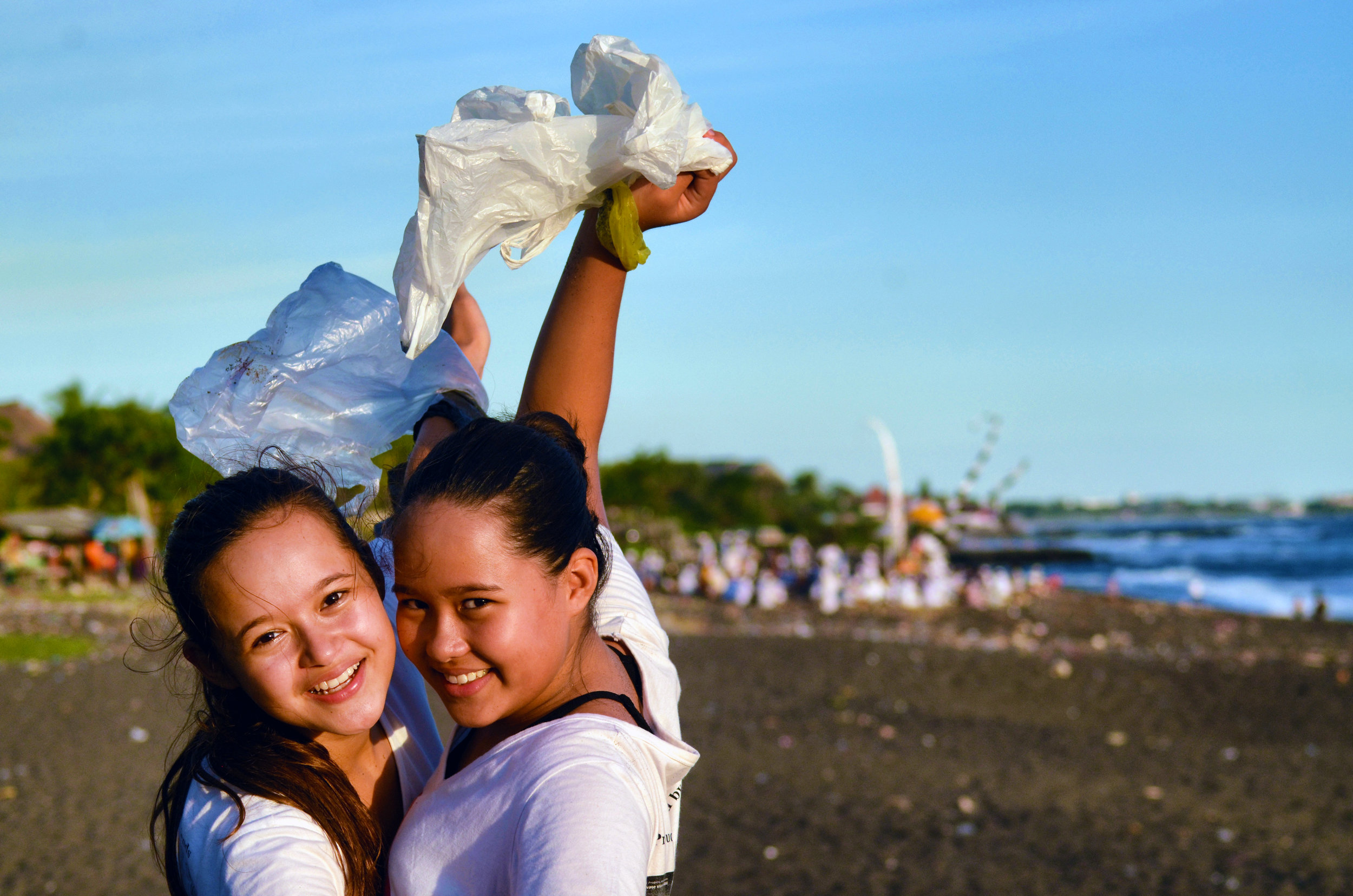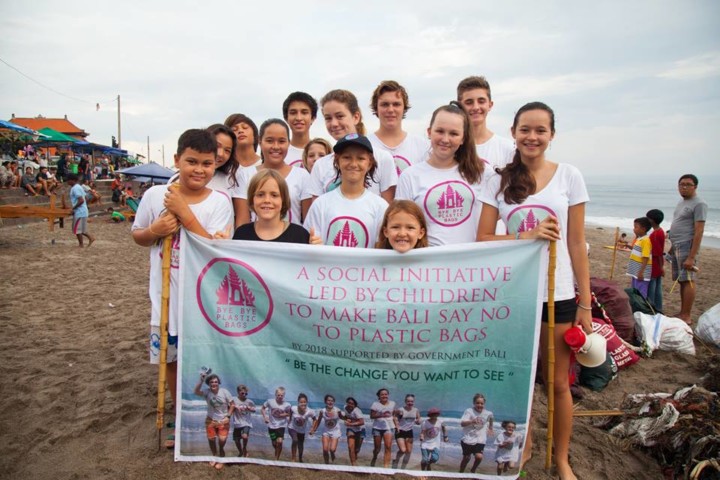Will Bali be plastic bag free by 2018?
(Courtesy of Melati and Bel Wijsen)
Teen sisters, Melati and Isabel, are fighting for an answer.
Known by locals as the island of the gods, Bali is a topical paradise — and a pair of Balinese teens are fighting to keep it that way. Meet Melati and Isabel “Bel” Wijsen, two of the island’s fiercest environmental activists.
Fuelled by a love of their home and a determination to protect its natural resources, 17-year-old Melati and 15-year-old Bel are advocating to eliminate single-use plastic bags from the island. Plastic pollution now plagues the famed tourist destination — garbage covers beaches and surrounds offshore divers. This is a problem across all of Indonesia, the second largest plastic polluting country in the world.
To preserve Bali’s landscape and reduce waste, Melati and Bel launched Bye Bye Plastic Bags in October 2013 to secure a ban on the use, sale and production of single-use plastic bags from retailers. According to the sisters, only 5% of plastic bags in Bali are recycled — and plastic bags take years to decompose, leaving chemicals and toxic particles behind.
Melati and Bel’s initial efforts focused on distributing alternative non-plastic bags to local shops and teaching locals about the pollution problem. Bel remembers one of their early school visits: “We went into a primary class one day and asked a simple question, ‘Are plastic bags good or bad?’ The kids said, ‘Plastic bags are good — I go to the store, I get my plastic bag and it’s free. I go home, I burn it and it’s gone. Not my problem anymore.’ It made us realize that education is really the key to change.”
(Courtesy of Melati and Bel Wijsen)
In order to educate the entire island on the dangerous effects of single-use plastic consumption, the girls decided government policies needed to change. To try and get officials’ attention, Melati and Bel started a petition to ban plastic bags and collected 100,000 signatures. Their efforts resulted in opportunities to speak at the United Nations and to give a TED Talk, but received no response from Bali’s leadership.
Instead it took a Gandhi-inspired, nutritionist-approved hunger strike to get the attention of the Governor of Bali, I Made Mangku Pastika. He heard their pitch and signed a memorandum of understanding agreeing to work toward a plastic bag free Bali by the end of 2018.
Progress nearly happened in 2016. Indonesia instituted a 2 cents charge on single-use plastic bags in Bali, but the government quickly repealed the policy following criticism that the tax was too low to be effective and disagreements on how the collected taxes would be spent.
Now only four months away from the deadline to make Bali plastic bag free, the Governor of Bali has yet to make any substantial changes.
“We’ve proven it’s legally possible for Bali to charge a tax on plastic bags. It’s economically more beneficial — the tourism industry loses about $53 million a year due to the plastic pollution alone.”
Both sisters are frustrated with the lack of action. “We’ve proven it’s legally possible for Bali to charge a tax on plastic bags. It’s economically more beneficial — the tourism industry loses about $53 million a year due to the plastic pollution alone. We’ve proven it’s practical and the people are ready with all these events and actions we do. But unfortunately, the excuse the government is hiding behind is that the people aren’t ready,” explains Melati.
Still they remain hopeful there will be movement before the year is out. Melati and Bel plan to continue reminding the government about its promise and trying to garner support from local Balinese.
Protecting the environment is second nature to Melati and Bel. They spent much of early childhood at their family’s rural home in Seseh and living on a Phinisi, a traditional Indonesian sailboat that took tourists around the country’s famed 17,000 island archipelago. Growing up around all this natural beauty “instilled in us at such a young age a love for the environment and really that deep connection and need to protect what I love and what I stand for,” explains Melati.
Bel is two years into secondary school and hopes one day to combine her passions: performing arts and activism. Melati graduated in June (a year early) and plans to spend the next year focusing on Bye Bye Plastic Bags and building out a network of young activists.
At the end of long day of school or advocating (or both), the girls like to unwind at their favourite spot on the island: the beach just behind their house. On cosy blankets, the girls picnic with their parents at sunset — Bel is on snack duty and Melati selects the music. This downtime offers them the opportunity to reconnect with the nature they fight to protect.
The world’s changing climate continues to present new challenges and Bel and Melati want people to be as prepared as possible. Bel says, “We know saying no to plastic bags isn’t the final solution, but it’s definitely a step forward.”
 Read more
Read more














